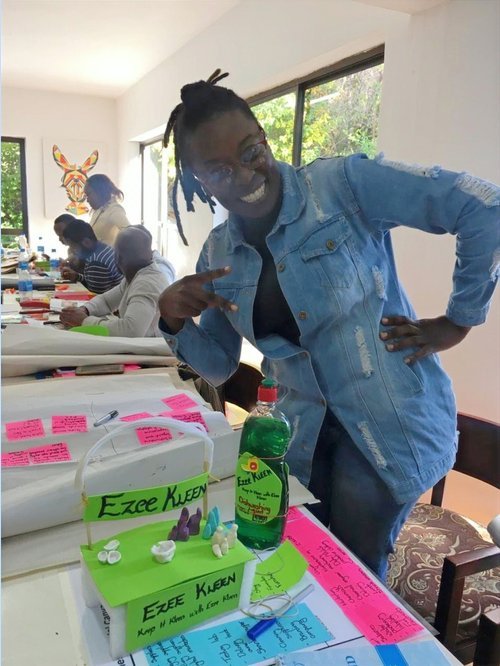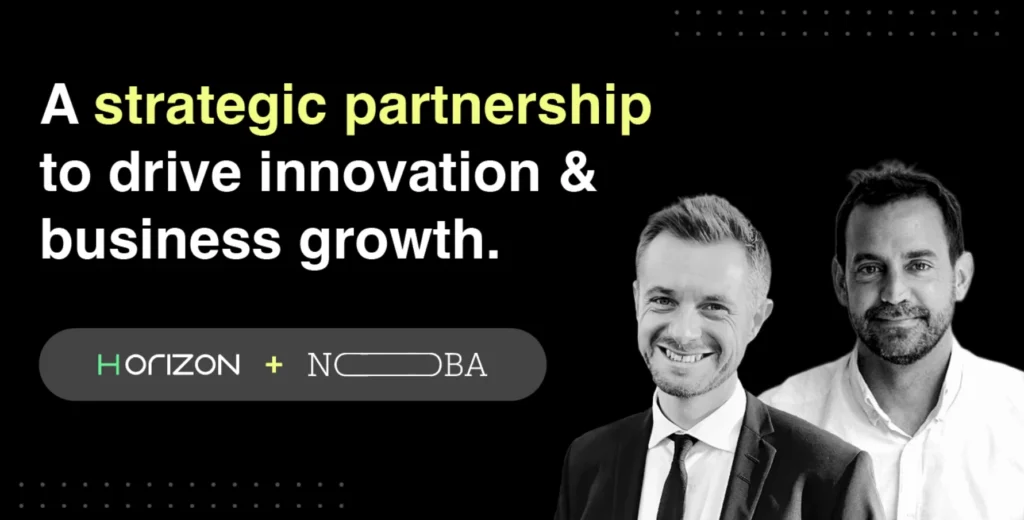This blog entry was written by Olga Sganzerla, Business Designer at NOBA, sharing her experience as a mentor at ACT IN AFRICA Business Growth Program. We would like to acknowledge the collaboration of Geraldine Zikwature for the creation of this piece.
In early 2019, Geraldine Zikwature, was busy running her business out of Harare, Zimbabwe. She was CEO and Founder of EzeeKleen, a detergent business, and felt something was holding back her success.
After all, she knew the market well. She was confident in her product. She competed at the right price point. Why, then, did clients keep ignoring EzeeKleen products for more expensive foreign alternatives?

She decided to enroll in the ACT IN AFRICA Business Growth Program, a local startup accelerator, to see if they had any answers. The program has a strong focus on customer centricity. Something she knew she had as well. Or so she thought.
She was pushed by the program to engage with actual customers. Reality started shining through. “I was actually grounding everything on my perception of what others would want, not what they really wanted. Talking to them was a total mind-shift.”
Geraldine gained two major insights during these conversations. The first was that customers were using the detergents to wash their hands, not just the kitchen. This meant that they valued products that were effective but not-aggressive to be used by the whole family. EzeeKleen was safe for all uses, but it was not actually making that claim.
Additionally, Zimbabwean customers were actually reluctant to purchase from international brands. They would much rather support locally owned businesses. But they were not willing to compromise on safety and practicality to do so.
Geraldine wanted to put these two insights to the test. She got back to the workshop and created a label featuring a whole family, suggesting it was safe for everyone. Secondly, she placed a Zimbabwean flag, to highlight the local nature of her products. Finally, she added a “thank you” note and her signature, creating a close bond with her customers.

In just a few hours, she had a batch of bottles with the new label, ready to be tested in the market in a specific location. She “infiltrated” one of the retail stores EzeeKleen was already available in. It allowed her to leverage the existing foot traffic and target unaware customers.
Not even a week had passed, and already it became apparent that she hit on the right keys. Sales were steadily rising with the new label, especially compared to other locations that had the previous label. With these new learnings in mind, EzeeKleen was on its way to gaining a larger market share, which persists to this day.
The “infiltrator technique” is an approach that allows for quick exploration of the level of interest of an idea. It has also been used by firms like Upwell Design to test the willingness to buy one of their designs. As can be seen in this hilarious piece, the design studio infiltrated their local IKEA to showcase “Wallhüb” to passersby.

Ms. Zikwature manifests that the human centered approach of listening and quickly testing new ideas is part of the way EzeeKleen now runs its business. With the arrival of Covid, they were once again quick to listen to the market and create a government certified disinfection service. Their products and services have continued to gain momentum throughout the pandemic.
All this has brought Geraldine Zikwature to be one of Zimbabwe’s leading new entrepreneurs. She has received wide recognition, including Outstanding Business Personality of the Year 2021, awarded by MegaFest Business Awards.
On top of her courage and drive, she credits the principles of human centered design for her success: question what you think you know, engage with customers and do not be afraid to test your ideas. Even if that occasionally means “infiltrating” the market.







